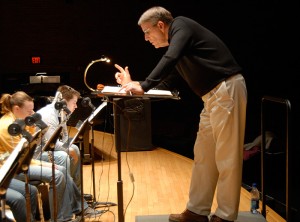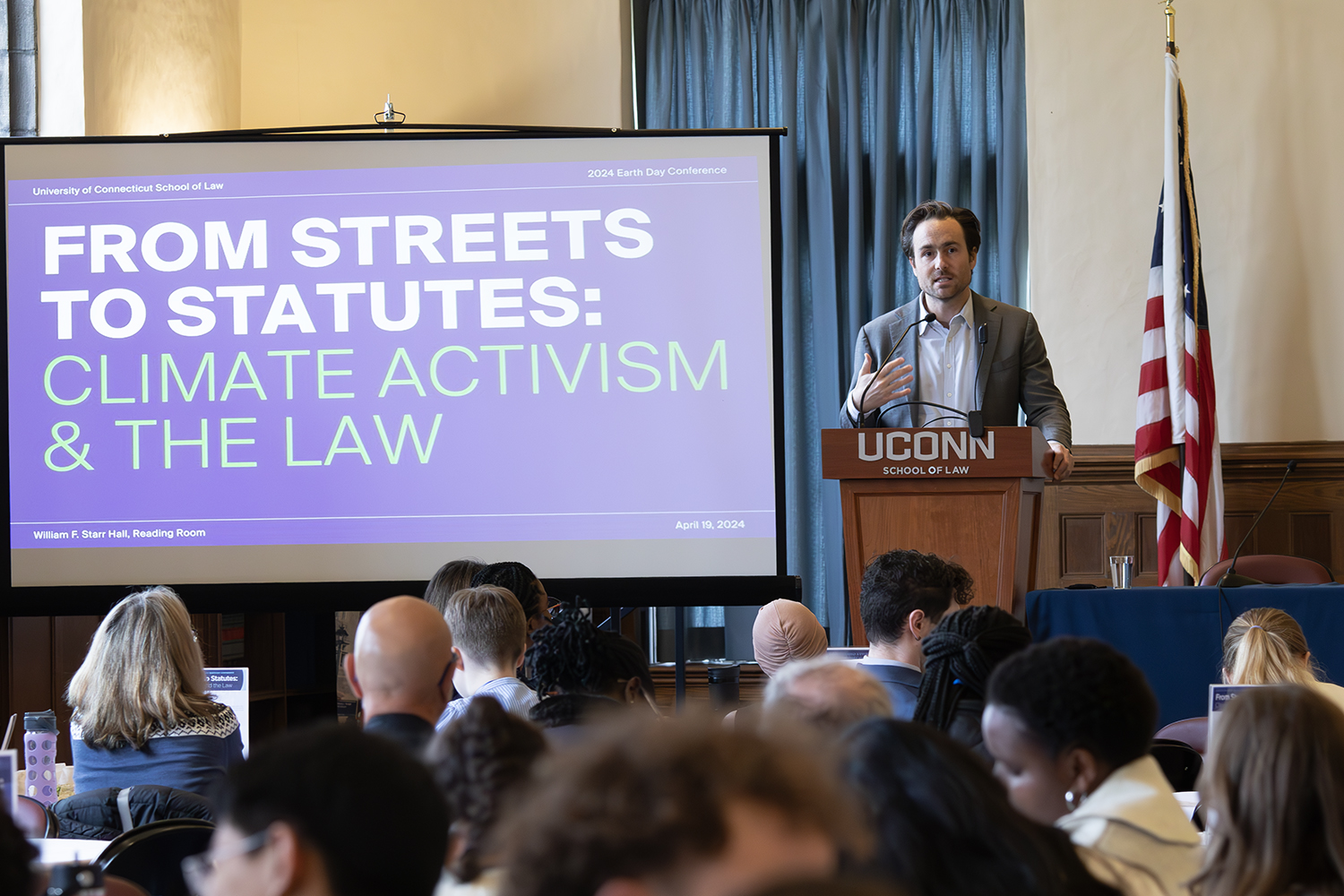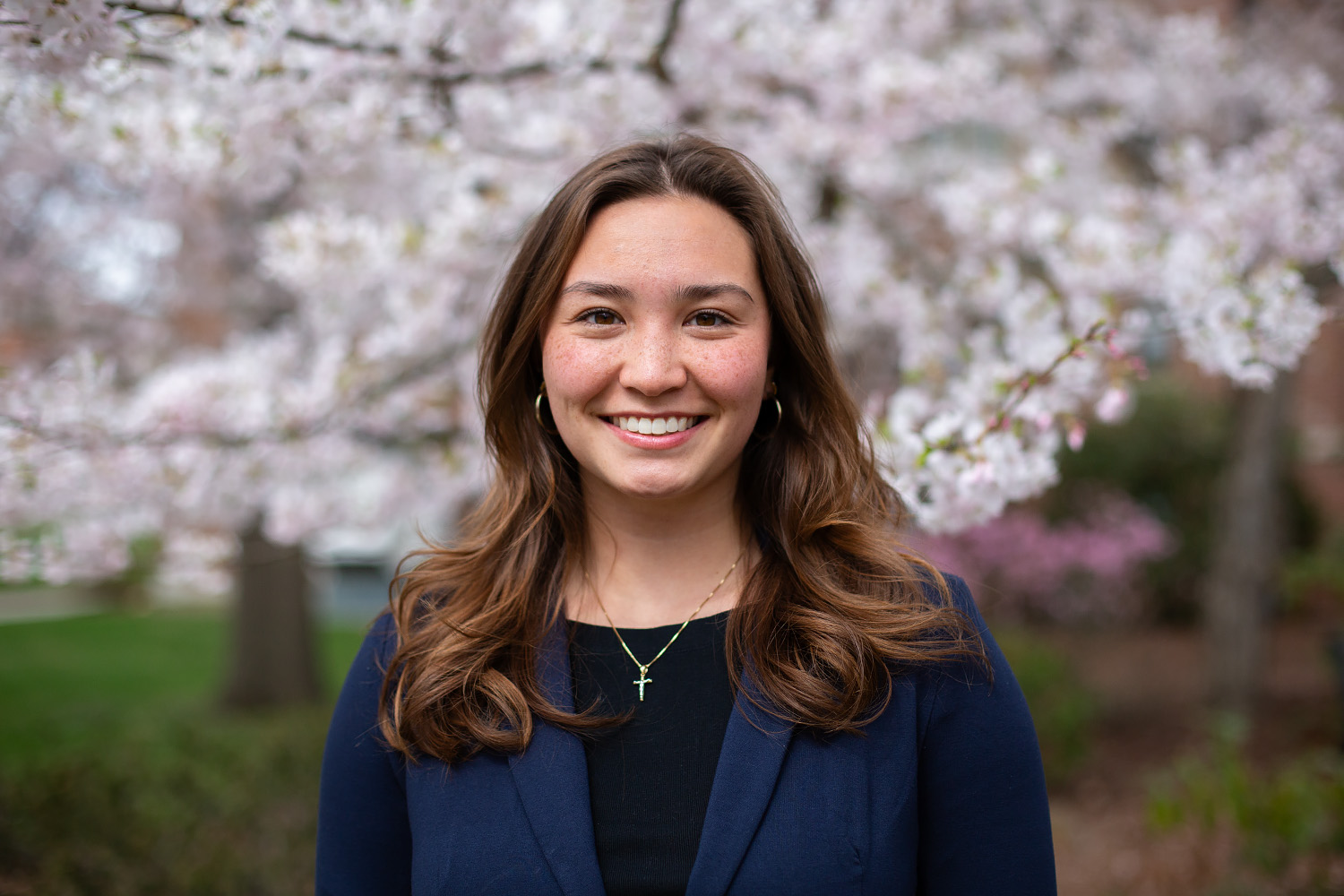
Internationally acclaimed composer and pianist Nathan Currier presented the premiere performance of his winning composition for the 7th Annual Raymond and Beverly Sackler Music Composition Prize March 21 in von der Mehden Recital Hall.
Currier’s Concerto for Piano and Wind Instruments was conducted by professor Jeffrey Renshaw and performed by internationally known pianist Neal Larrabee, accompanied by The UConn Wind Ensemble. The performance was sponsored by the Department of Music in the School of Fine Arts.
A second performance showcasing Currier’s Sackler concerto took place March 22 at UConn’s Stamford campus.
Established at the University in 2001, the Raymond and Beverly Sackler Music Composition Prize is part of a broader structure promoting innovation within the School of Fine Arts and is intended to provide an opportunity for cutting-edge exploration in the creation of new musical works. Prize winners receive $20,000 in financial support and an opportunity to showcase their work through performances and recordings.
Being a Sackler Prize winner “means a great deal to me,” says Currier, recipient of the 2008 Sackler Prize. “I have a long association with the piano, since that was my instrument growing up, and yet I had never written a piano concerto. One friend had been saying to me in recent years: you should really write a concerto. The Sackler Prize has now given me the chance to do so. … It’s a great opportunity for me.”
The 2008 Sackler Prize was for a composition of 15 to 25 minutes in length for a concerto for piano and wind instruments, with the same instrumentation as the Concerto for Piano and Wind Instruments by Igor Stravinsky.
Currier said his encounters with the University have been “a truly wonderful experience,” and he has “been impressed by the high level” of musical appreciation in Storrs.
Currier received the Academy Award from the American Academy of Arts and Letters for lifetime achievement in the arts in 1999. The award’s citation mentioned the honesty and clarity of his music as well as the direct impact, immediate appeal, and “breathtaking virtuosity” of his compositions.
He has also been honored with such prizes as the Rome Prize for composition, a Guggenheim Fellowship, a National Endowment for the Arts Fellowship, a grant from the Fromm Foundation at Harvard University, the Leonard Bernstein Fellowship at Tanglewood, the Charles Ives Fellowship from the American Academy Arts and Letters, a Fulbright Grant, and a New York Foundation for the Arts Fellowship, as well as the Silver Medal – as a pianist – in the International Piano Recording Competition for a performance of Bach’s Goldberg Variations.
The winner of the Sackler Prize is selected through an international competition for composers. Each year, the University’s Sackler Composition Prize committee selects a specific composition category for the prize, such as jazz ensemble, choir, opera, orchestra, chamber ensemble, solo instrument, or electronic music, among others.
The adjudicators for the 2008 Raymond and Beverly Sackler Music Composition Prize were Stephen Steele, a conductor and professor of music at Illinois State University; Menahem Pressler, an internationally acclaimed pianist and distinguished professor of music at Indiana University; and Craig Urquhart, a notable pianist and composer from the Leonard Bernstein office and the Craig Urquhart Agency.
Past Sackler Prize winners include: Gabriela Frank, 2002 winner in the category of chamber ensemble and solo violin; Karim Al-Zand, 2003 winner in the category of chamber ensemble and solo trumpet; Orianna Webb, 2004 winner in the category of chamber orchestra; Stacy Garrop, 2005 winner in the category of chamber wind ensemble; Rufus Reid, 2006 winner in the category of jazz ensemble; and Sheila Silver, 2007 winner in the category of opera.
The most recent Sackler Prize 2009 winner is J. Mark Scearce in the category of cello and orchestra.


